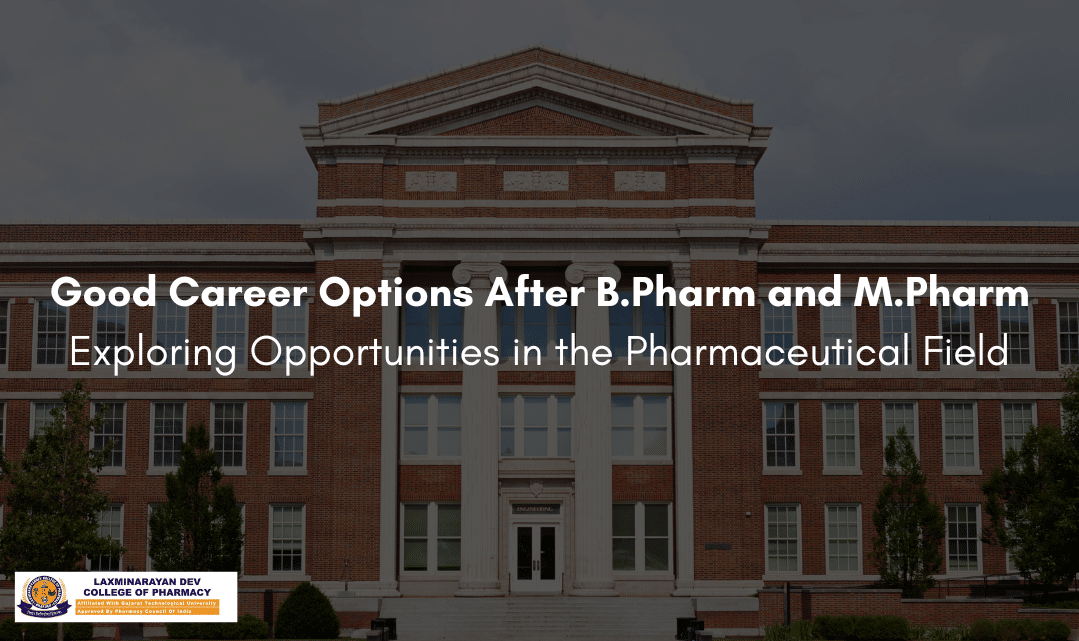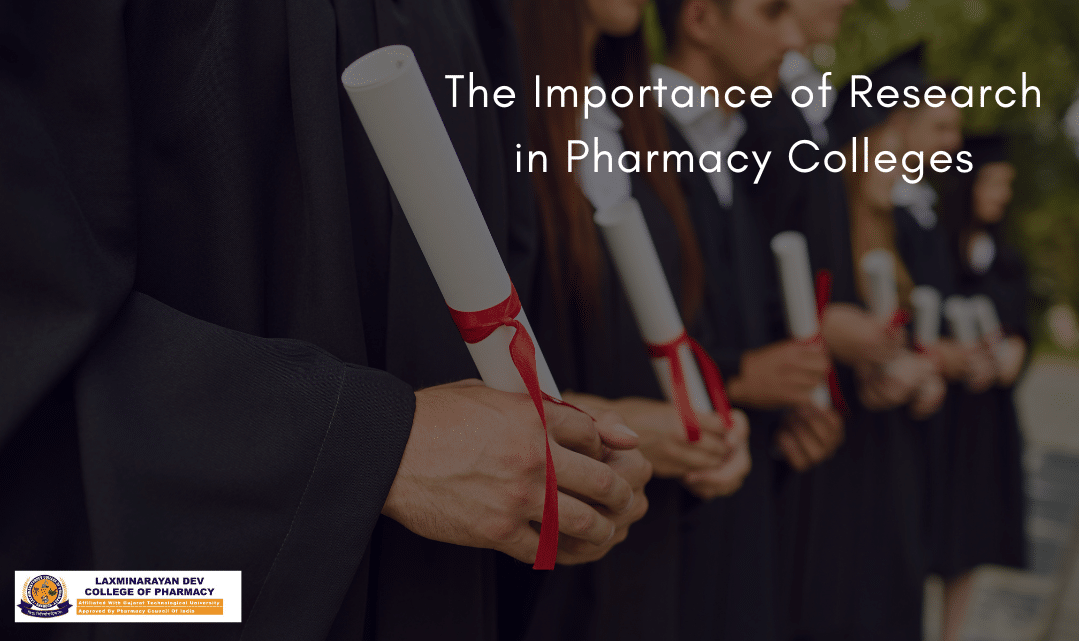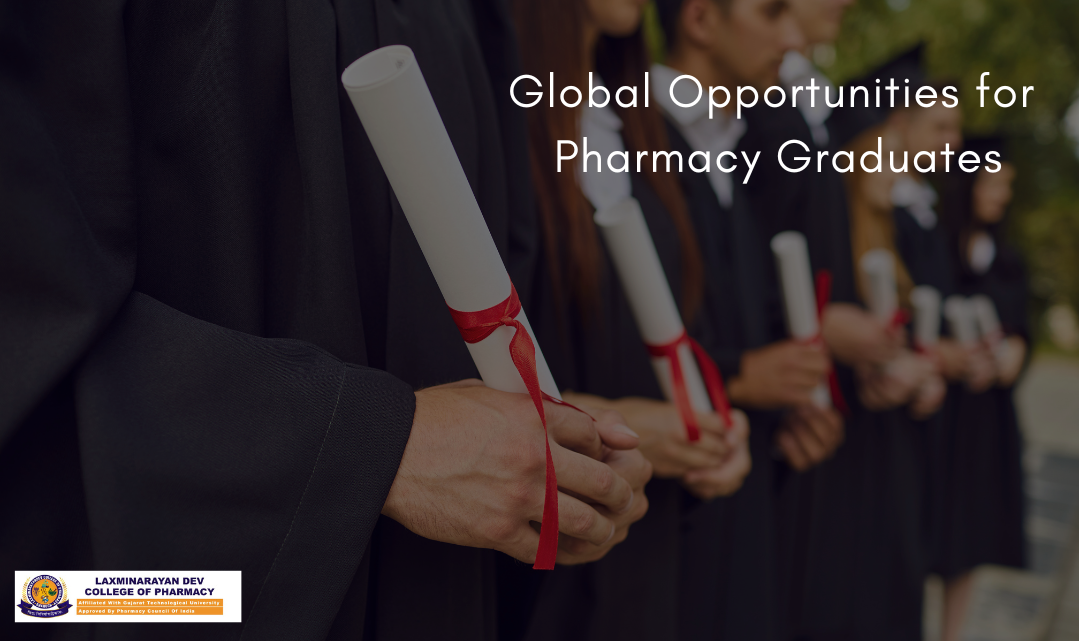
LaxminarayanDev College of Pharmacy (LDCP) has always been dedicated to fostering knowledge, skill, and professional growth in the field of pharmacy. Our alumni have gone on to become leaders, innovators, and dedicated professionals in the pharmaceutical and healthcare sectors. In this blog, we’re proud to share some of the inspiring journeys of our graduates, who have successfully transitioned from students to significant roles in reputed companies. Their dedication and achievements stand as a testament to the quality education and training at LDCP.
1. Srutika Bharambe – QA Officer (Analytical Quality Assurance)
Srutika Bharambe has excelled in the field of analytical quality assurance, working as a QA Officer. Her journey from LDCP to a crucial role in quality assurance highlights her commitment to maintaining the highest standards in pharmaceutical quality and safety.
2. Priya Archan Kachhia – Executive, RPG Life Sciences
With her role as an Executive at RPG Life Sciences, Priya Archan Kachhia embodies the values of hard work and expertise instilled by LDCP. Her work contributes significantly to advancing pharmaceutical products that benefit millions, demonstrating the real-world impact of her LDCP education.
3. Jay Patel – Executive, RPG Life Sciences
Jay Patel’s role as an Executive at RPG Life Sciences underscores the value of LDCP’s practical training in preparing students for industry demands. He continues to grow and make meaningful contributions to the company, reflecting the strong foundation he built at LDCP.
4. Anuj Patel – Executive, RPG Life Sciences
Anuj Patel’s success story is an inspiring reminder of LDCP’s commitment to excellence. As an Executive at RPG Life Sciences, Anuj plays an integral role in supporting the company’s goals, utilizing the skills and insights he developed during his time at LDCP.
5. Pratiksha Patanvadia – QA Officer, Ajanta Pharma Ltd
At Ajanta Pharma Ltd in Dahej, Pratiksha Patanvadia’s role as a QA Officer highlights her dedication to maintaining high standards in pharmaceutical manufacturing. LDCP’s rigorous training and focus on quality assurance have empowered her to achieve remarkable success.
6. Fahim Patel – Executive, RPG Life Sciences
Fahim Patel’s journey from LDCP to RPG Life Sciences shows the breadth of career opportunities available to pharmacy graduates. As an Executive, Fahim contributes to the company’s vision, embodying LDCP’s values of responsibility and integrity in the pharmaceutical industry.
7. Saad Gaud – Officer, Quality Assurance at Ajanta Pharma
Saad Gaud’s position as an Officer in Quality Assurance at Ajanta Pharma is a testament to the quality education LDCP provides in quality management and control. His achievements reflect LDCP’s focus on preparing students for roles that impact public health and safety.
8. Abhilasha Rathod – Management Trainee, Cipla
Abhilasha Rathod’s success as a Management Trainee in Sales and Academics at Cipla showcases the diversity of career paths available to LDCP graduates. Her journey reflects LDCP’s emphasis on holistic development, helping students succeed in various roles in the pharmaceutical and healthcare sectors.
9. Mansi Persania – IPQA Officer, JB Chemicals
Mansi Persania’s role as an IPQA Officer at JB Chemicals illustrates the importance of quality assurance and patient safety. Her contributions to the pharmaceutical industry underscore the rigorous and practical training provided at LDCP.
These success stories reflect the dedication, hard work, and industry readiness of LDCP graduates. Each of these professionals is not only advancing their careers but also contributing to the global healthcare system. Their achievements serve as an inspiration to current and future students, proving that with the right education, mentorship, and determination, one can make a significant impact in the world of pharmacy.
If you’re passionate about a career in pharmacy and want to be part of a supportive and impactful academic environment, explore the programs at LDCP today and start your journey toward success.









